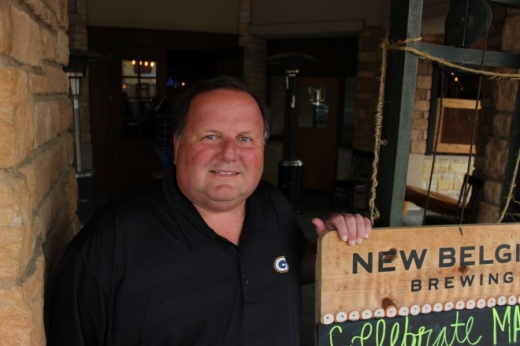Sample is the general manager for Shoal Creek Tavern in Highland Village, where, heading into Valentine’s Day, the staff had been anticipating some of its best sales numbers of the year.
Instead, customers canceled reservations as they braced for the storms, which wiped out all that potential revenue. Several days of closures exacerbated the effect on the business, Sample said.
“Honestly, I would say that everything that we have been through [in] 2020 has prepared us mentally and emotionally for that kind of impact,” Sample said. “But it is hard. It is very hard.”
The experience of staff at Shoal Creek Tavern was common across businesses in various industries in Lewisville, Flower Mound and Highland Village.
Even with coronavirus spread levels falling in recent months, state restrictions lifting and new federal aid programs on the way, the winter storms represented yet another setback for a local business community that is, in many ways, still picking up the pieces from one of its hardest years in recent memory.
“The freeze was sort of a punch in the face to people who had been struggling for a year,” said Lori Fickling, president and CEO of the Lewisville Area Chamber of Commerce. “To have that freeze hit on top of this horrible 2020 year just adds injury to heartache.”
Some businesses’ buildings suffered catastrophic pipe damage that has yet to be repaired. Many more saw revenue losses due to February’s closures. And while forgivable loans from the second round of the federal Paycheck Protection Program are reaching pocketbooks, some business owners in the Lewisville area have said that can only partly make up for the losses of the last year.
“We were still burning money to keep this business operating,” said Jim Verfurth, owner of Shoal Creek Tavern in Highland Village. “Even though we got that loan, it didn’t cover everything.”
Another revenue hit
Karlie Casillas spent her Valentine’s Day making dozens of phone calls, informing about 100 people that the restaurant at which they had made reservations in Old Town Lewisville would be closed.
Casillas, the assistant general manager at Prairie House Restaurant, said internet issues at the property delayed its reopening until four days later that week.
“Of course, you can’t do anything but move on from the setbacks,” Casillas said. “You just have to take it and roll with it. Of course, we can’t control the weather, but we can control how we handle those situations.”
Pipes froze underneath the property but did not burst, Casillas said.
Other businesses were not so lucky.
At Cross Timbers Dental in Flower Mound, burst pipes flooded the office with more than a foot of water. The damage forced the office to close for an extended time. Nearly a month after the storm, the dental practice was still only accepting appointments for a few emergency procedures.
In Lewisville, the chamber and the city have been surveying businesses to assess how much damage was incurred in the community, Fickling said.
Fewer businesses reported severe damage than expected, but many more were affected in some way by the storms, Fickling said.
“The biggest impact is just yet another week of lost revenue—I mean, completely lost,” Fickling said. “You’ve got to recover from that. Here you are, into March, and [the year financially] already looks terrible.”
The path forward
Despite these losses, some help is on the way from the federal government.
As of March 12, some eligible businesses throughout the Lewisville, Flower Mound and Highland Village areas had already received funds from the second round of the Paycheck Protection Program, and others had applied but were still waiting. The first round of these loans came at a critical time in the summer last year, Verfurth said.
“It saved our business, I’d say,” he said. “All of our landlords refused to provide any rent relief. They said, ‘We want 100% of the rent.’ At that point, you’re in between a rock and a hard place.” More than 3,000 businesses throughout Lewisville, Flower Mound and Highland Village received funds in the first round of PPP loans, according to records from the U.S. Small Business Administration. These businesses reported retaining more than 30,000 jobs as a result of the program.
These loans can be forgiven if businesses maintain their staffing levels, which provides an incentive to keep employees on the payroll and creates a boost for businesses during a year of substantial losses attributed to the pandemic—and, in Texas, to winter weather.
“If people are thinking about survival in their own home, they’re not thinking about your business,” Fickling said.
Businesses also received big news March 2 when Texas Gov. Greg Abbott announced that he would lift most coronavirus-related restrictions on capacity and let masking requirements expire throughout the state.
Abbott’s steps left the door open for local counties to place restrictions on business capacity in areas with high COVID-19 hospitalization rates. But in North Texas, hospitalizations were still well below the governor’s threshold as of March 12, giving Denton County businesses the ability to operate at full capacity if they so choose.
Throughout the pandemic, some area businesses have reported building closer relationships with their customers.
At Shoal Creek Tavern, area residents who lacked food or water started showing up when the tavern reopened during the week of the storms, Sample said.
“We had so many families come in because they didn’t have food [or] didn’t have water,” Sample said.
Prairie House Restaurant saw a number of early customers set up shop in Old Town to use the internet in the immediate aftermath of the storm, Casillas said.
Some customers have also been leaving larger tips throughout the pandemic to support staffers, who have had to work in person during the pandemic and rely on tips for income, Verfurth said.
Ultimately, he said, customers will need to have confidence they can dine and shop safely for the business community to make a full recovery.
“I’m very bullish on the end of this year,” Verfurth said.





